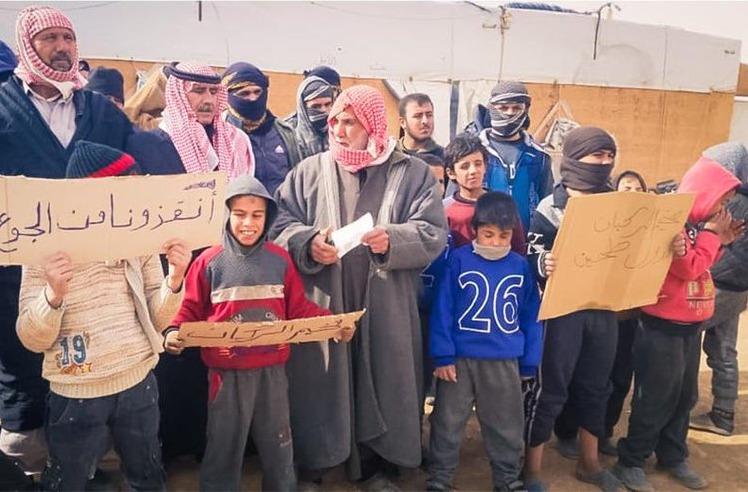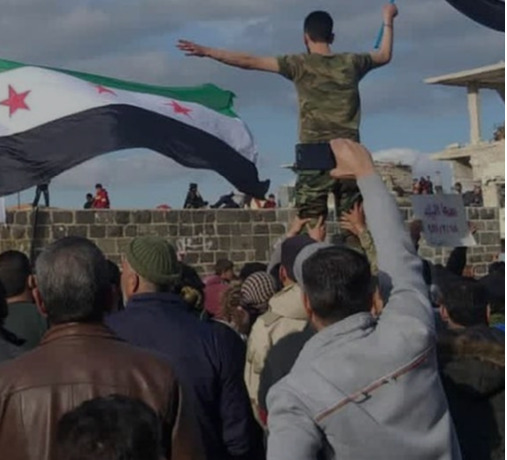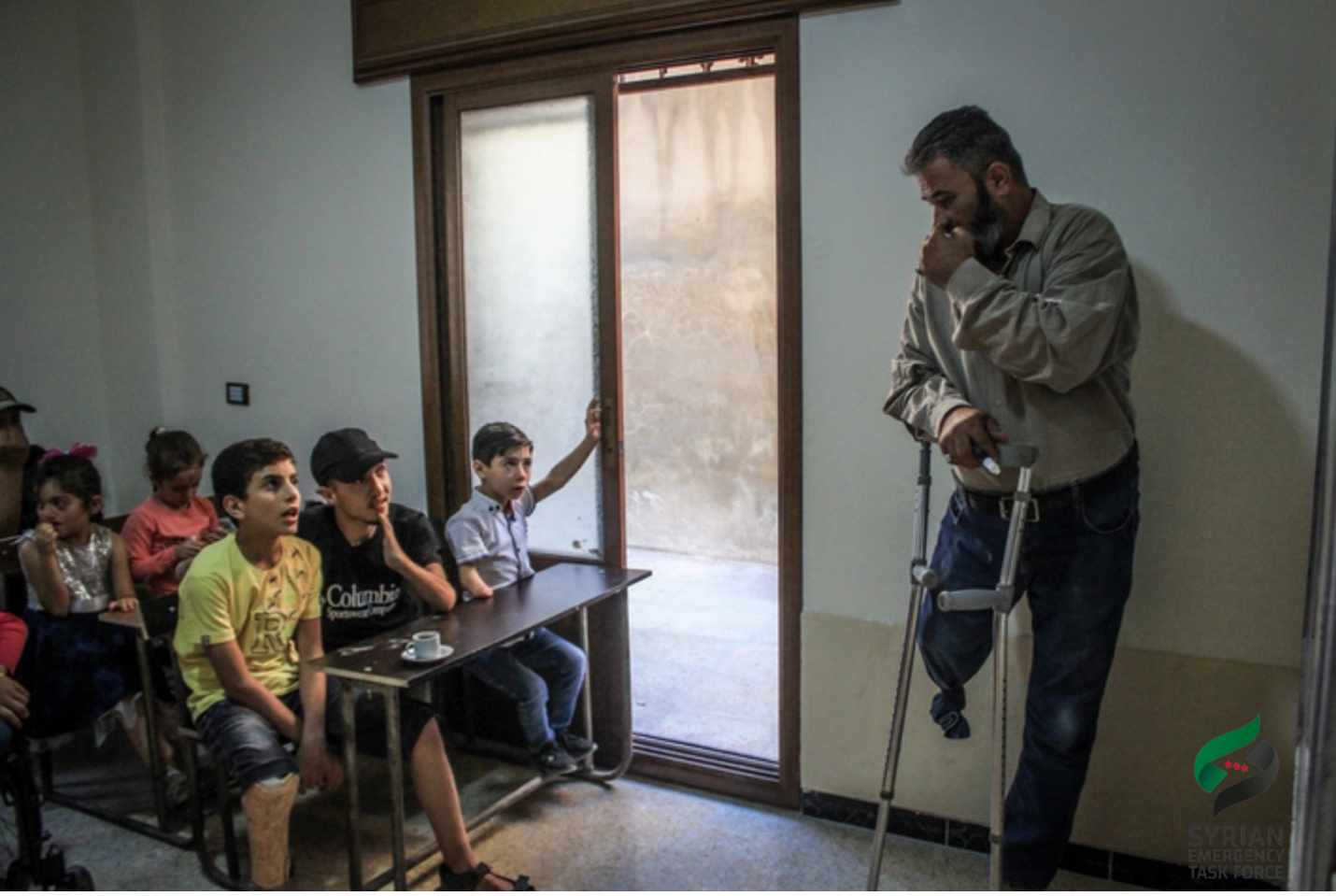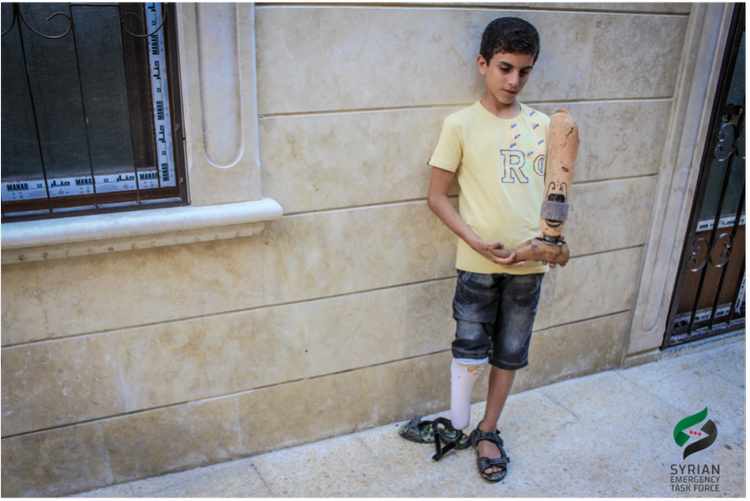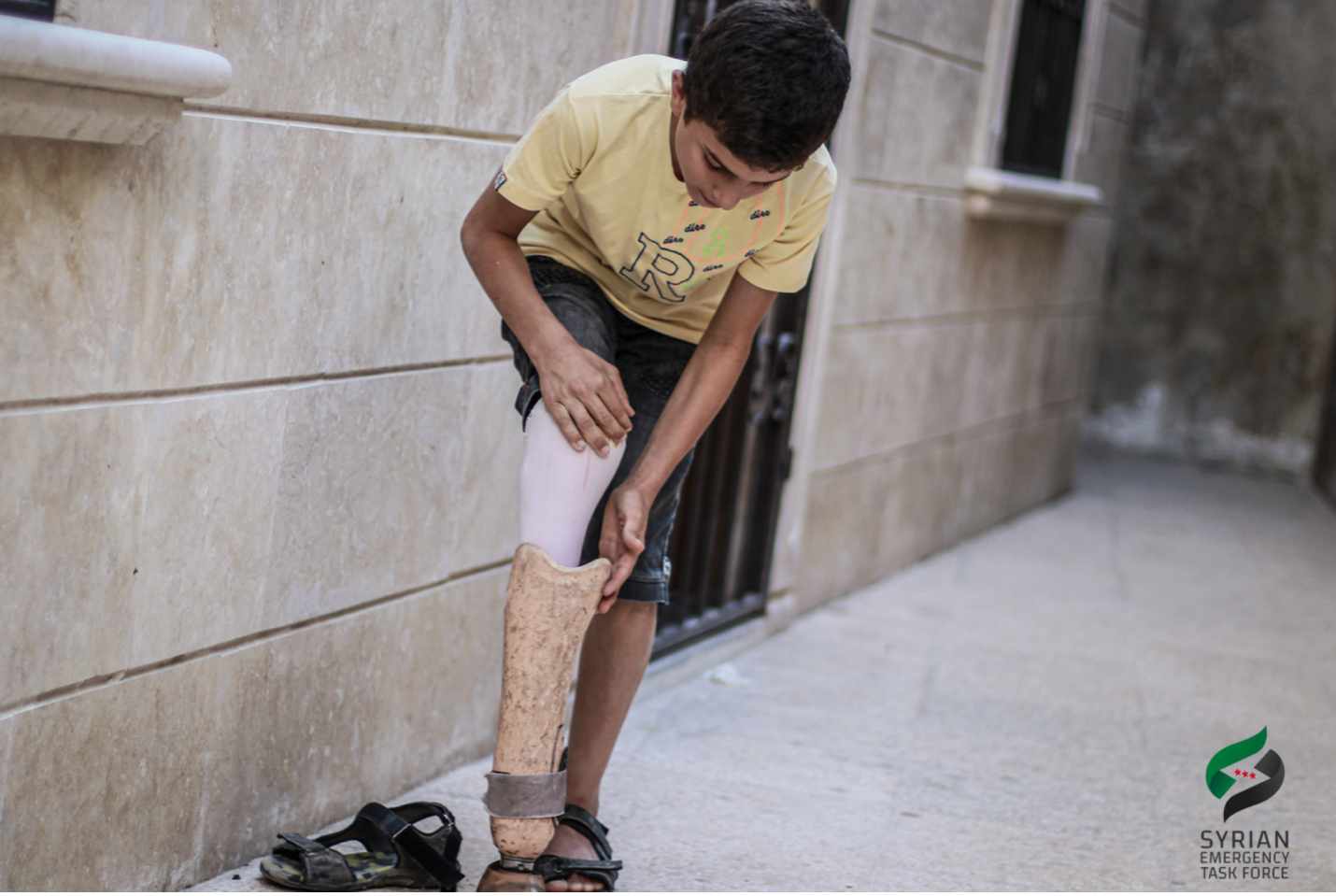Written By Lana Aldos
Interviewer and Photographer: Mohamad Kazmooz
It has been over 10 years since the start of the Syrian revolution. The consequence of this war forced millions to flee to neighboring countries, risk their lives and cross-seas to European countries, and internally displace to neighboring cities. Almost a million have died, been detained, and tortured by the Syrian regime, or are missing. The one group lost in the consequences of this war is those who have been injured and are struggling to survive without access to medications and critical care.
In Northern Syria, Idlib is the largest “freed” region no longer controlled by regime forces and is now controlled by opposition forces. The region houses internally displaced people from all over Syria, especially those who could no longer live under the control of the Syrian regime, and those who have lost their belongings and were forced to find a new home. Idlib is also home to injured civilians from the war, those who were forced to amputate their limbs to live and who now make up a large majority of the disabled population in the region.
The amputee population in Idlib does not have access to regular rehabilitation services, and many cannot afford and do not have access to prosthetic limbs or other mobility equipment. Oftentimes, those struggling to afford basic necessities such as food, water, and shelter, cannot afford healthcare services and have to prioritize their survival over their rehabilitation. While it’s more bearable for the adult group in this population, amputee children gave up on their dreams, lost their childhood, and learned a new normal because of their injury. Unfortunately, there are many cases where one or more children or adults within the same family have lost their limbs during the war. With the widespread extreme poverty in the region, amputee children do not live a normal childhood, and many despite their amputation, also financially support their families. The majority of these children were born in a war zone, grew up in a war zone, and were injured by a bombing, shelling, or shooting that caused their amputation. In addition to all the children that were born and grew up during the war, children amputees need access to rehabilitation services, prosthetic equipment, and social services.
One place of hope for children amputees in Northern Syria is Khatwa school, a specialty school offering free education for children amputees in Idlib. The large number of children amputees displaced in Idlib forced the community to build Khatwa school. The lack of integration services for amputees and injured children into regular schools was another motivation for the community to build Khatwa school.
Khatwa school is the only hope for education for children amputees in Idlib. In this school, children learn regular elementary education with fellow children with the same disability while also learning to manage their disability. The need for this school is critical since many of these children could not attend a regular local school and those who tried experienced extreme bullying that forced them to leave.
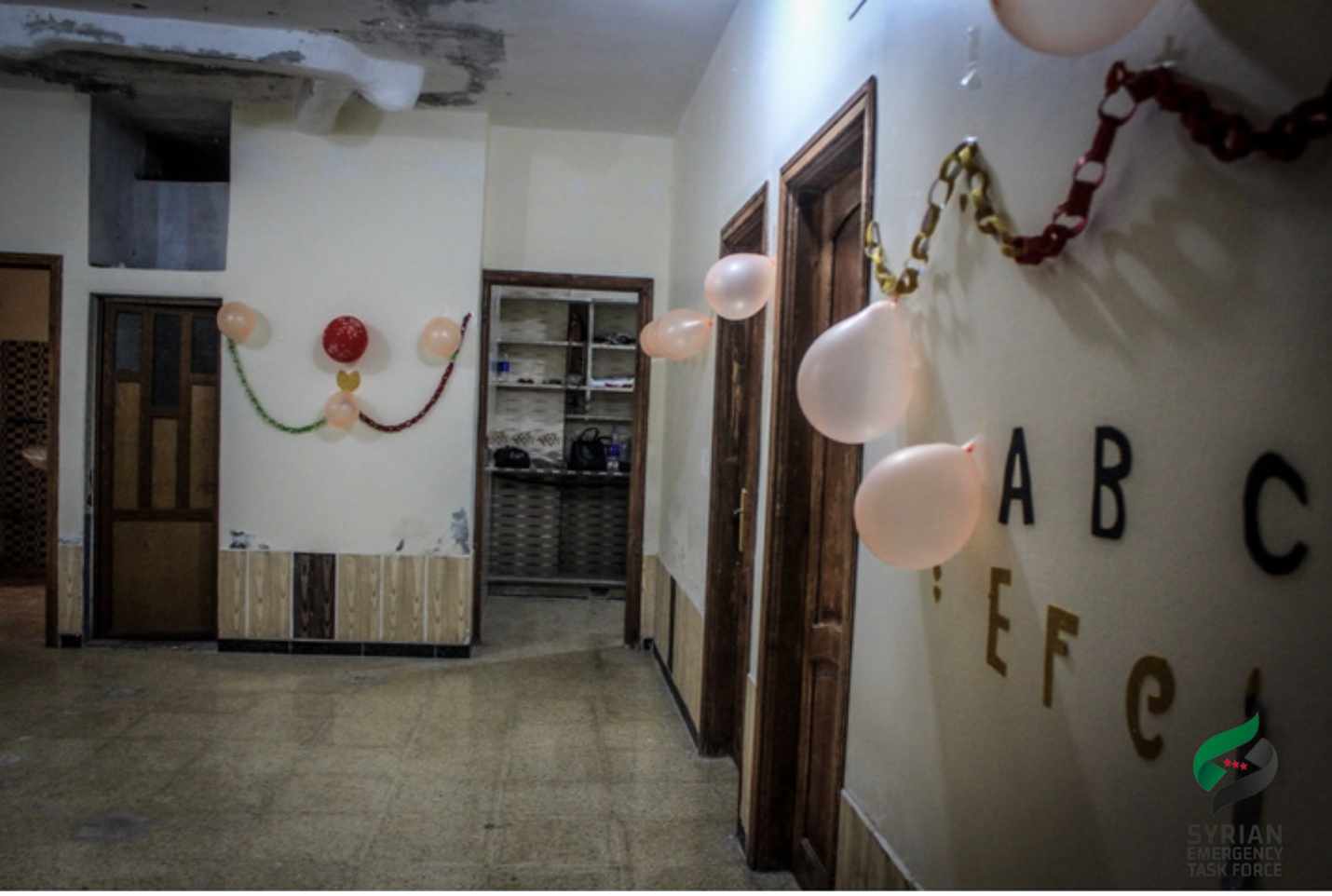
The need for Khatwa school is not only to provide an education for children amputees, but the school is the one place where these children can feel represented and experience whatever is remaining from their childhood. Without Khatwa school, children amputees will be forced to grow up without an education and watch other children in their age group go to school and live a normal childhood.
Unfortunately, with the continued lack of financial support, Khatwa school is on the brink of shutdown.
The deteriorating financial situation for the people in Idlib leaves many struggling to survive. With the reduced financial support from international communities including the UN, people in Idlib lost access to food and shelter which forced families to displace once again. Because of this reduced support, Khatwa school is on the brink of shutting down, leaving many children amputees without an education.
When asked about their situation, the school leadership emphasized that their financial needs are not for the children to have a quality education, though it is a dream, they said. They only need financial support to cover the costs of rent, electricity, and water bills to keep the school running as a home for amputee children. The school cannot afford to give children a quality education, and because of the extreme poverty in the region, the school administration and families cannot afford school supplies to help children with their education, they make do with any contribution to continue any form of education.
While lost in the many needs of the people of Idlib, the school attracts little to no attention from international communities, the UN, and any other humanitarian organizations. The children in Khatwa school deserve an education and deserve to live a near-childhood experience.
Hope and family: How Mohammad found home and community at Khatwa school
Mohammad Alasaad is a 13-year-old child living in Idlib and attending Khatwa school. Mohammad was internally displaced from Saraqib city, a city in northwest Syria. He was forced to leave his home, his friends, and everything he’s ever known to find safety and security. He finally found a new home in Idlib, where he now resides with his family. Prior to his escape to Idlib, Russian planes hovered over Mohammad’s city and bombed his surroundings. As a result, Mohammad was injured in his right foot which caused his amputation. When we asked Mohammad, he described his story in full detail, reflecting the trauma that haunts him daily.
“I was in school that day,” Mohammad said, “I can hear and see the Russian planes, and after school, I was walking home as I do at the end of school every day.“ As he was recounting the events of his injury date, Mohammad described the presence of warplanes, bombings, and shootings as if it was a normal day. This is the reality of children born and growing up during the war in Syria, the war becomes their only normal.
“On my way home, a bomb dropped in front of me and caused me to lose my foot, while bombing shrapnel penetrated other parts of my body,” Mohammad described the moment of his injury. “I didn’t just lose a part of my body, my cousin who was walking with me that day, lost her life, and the shrapnel hit my brother and caused his paralysis.”
Sadly, Mohammad’s story is not uncommon in Syria, hundreds of thousands of children in Syria have lived a similar experience. However, while describing his story, Mohammad’s turned hopeful when he began recounting his experience at Khatwa school. “There are children like me, and I am not bullied anymore,” Mohammad said.
Like Mohammad, there are 80 other children at Khatwa school who found home, hope, and family. Without Khatwa school, Mohammad would’ve experienced extreme bullying, and given up his dream of education. As Mohmmad finished his story, he confidently said, “Assad’s planes and his allies did not beat me, I beat them with my courage, hope, and education.”
Mohammad dreams of a smart prosthetic limb that will allow him to live a normal childhood and can play with his friends again.






